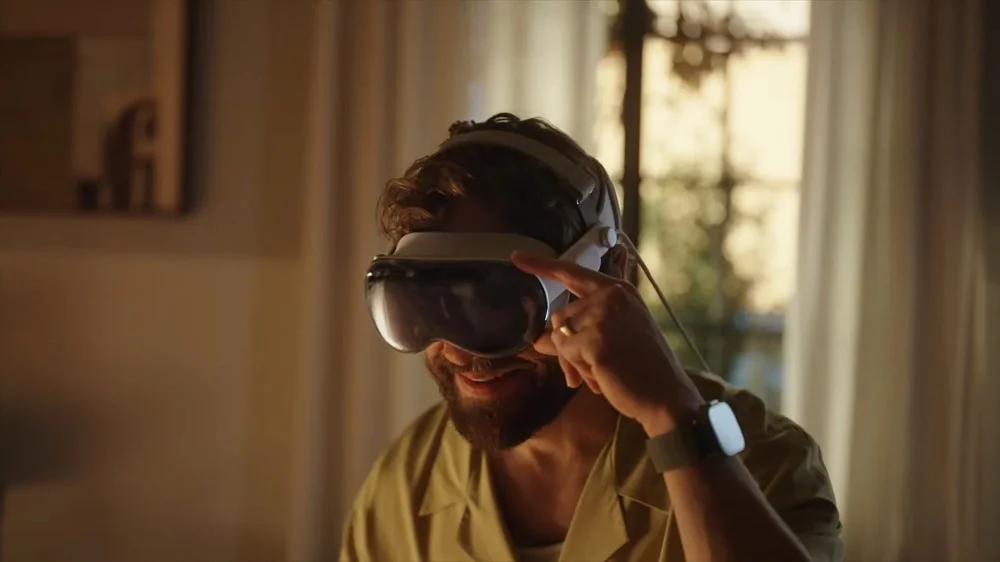Like any new Apple product, the company makes a big deal of what the Vision Pro is capable of. And indeed, it is pretty impressive, but it’s technically not something that we’ve not seen before. The way it is used is actually very reminiscent of what Xiaomi showed off during MWC 2023, with its Wireless AR Glass Discovery Edition. Control of the virtual interface is done using gestures, so this is familiar so far. There’s also the addition of voice commands as well. That being said, the Apple Vision Pro looks to have more AR use cases than VR. With that in mind, the headset comes with a feature that the company calls EyeSight, which lets other people “see” your eyes while you are interacting with them. When not, the headset screen will glow, obscuring your eyes with a lighting effect and letting people know that you’re busy with VR content. You can manually toggle this too, with a crown-like dial on the headset. The company also makes a big deal about the Apple Vision Pro supporting FaceTime. But since you’ll have the headset on your head, the cameras on it will first take a scan of your face. Then it projects a 3D avatar to mimic your facial movements for the other participants in the call to see. These cameras are also likely responsible for providing users its gesture controls. Naturally, you can also use these to record 180-degree videos, and “relive” them after the fact. Naturally, when you’re recording, the headset will indicate so to others with a similar kind of lighting that obscures your eyes. For the rest of the hardware of the Apple Vision Pro, it has a glass front and an aluminium alloy frame, with a strap that houses a pair of speakers that serve as the built-in headphones.. Attached to this is a modular mask and band setup, the latter of which is ribbed to improve grip on the back of heads, making allowances for different sizes and shapes. For those that wear glasses, it doesn’t seem like you can have those on while wearing the headset. Instead, the headset has custom optical inserts, with Zeiss involved in its making, that “accommodate a huge range of vision correction”. These also attach to the headset magnetically. As for the display behind it, the two micro OLED screens combined consists of 23 million pixels. For reference, a 4K TV has 8.3 million pixels. Battery life isn’t too impressive though, with the external battery only rated at two hours. But the fact that the battery pack is external means better weight distribution, and therefore comfort, when you have the Apple Vision Pro on. But when you’re not on the move, you can use it plugged in and use it for as long as you want. Finally, for the computing parts of the headset, the Apple Vision Pro uses an M2 chip. But alongside this is a new R1 chip that handles all the real-time processing of all the sensors attached to the headset, of which there are five unnamed ones, with 12 cameras and six microphones. The new chip is supposed to let the headset transfer what it sees to what you see in 12ms. For connecting to other devices, including an iPhone or a pair of AirPods, this is done via Bluetooth. It also features a new kind of biometric lock, called Optic ID, using your iris as the key. Rounding all of this up is the operating system called visionOS. Not quite the xrOS that was mentioned in prior reports. Being the “one more thing” reveal of the WWDC 2023 presentation, Apple calls the Vision Pro “the most advanced personal electronics device ever”. And as you’d expect, something like this doesn’t come cheap. In fact, it has an asking price of US$3,499 (~RM16,017). Unlike the other products unveiled during the event, it won’t be available soon either. The company’s home market in the US is only getting it early next year, with other unspecified markets to get their turn later in the year. (Source: Apple / YouTube)






